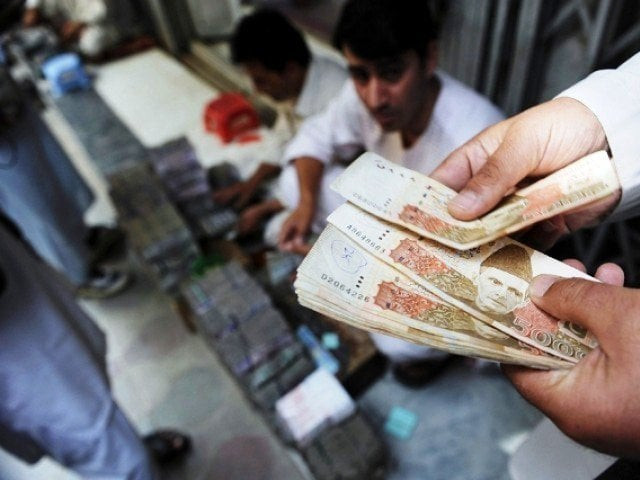PTI government to deal with arrears of Rs1.4tr
These were on account of circular debt and food subsidy

PTI government to deal with arrears of Rs1.4 trillion. PHOTO: AFP/FILE
The new Pakistan Tehreek-e-Insaf (PTI) administration was of the view that the economy was in a worst state when the PML-N left. In a bid to cope with the challenges, the current government wants a tight monetary policy for which the State Bank of Pakistan (SBP) would be provided full autonomy.
'Circular debt due to lack of planning, strategy'
Foreign exchange reserves held by the central bank are fast depleting and the government fears the country will run out of the reserves by early 2019, if corrective measures are not taken.
A senior government official told The Express Tribune that cabinet members were informed of the current economic situation in a meeting held in the last week of September.
During the course of discussion, it was pointed out that the previous government had left huge arrears and liabilities, which included power-sector circular debt of Rs566 billion, gas-sector debt of Rs150 billion, Power Holding Private Limited’s (GHPL) loans amounting to Rs582 billion and food subsidies of Rs150 billion.
The cabinet members were, however, told that this did not include the contingent liabilities, which had risen to Rs545 billion.
Furthermore, total arrears amounting to Rs2,083 billion were not part of the fiscal deficit, which was underreported in the books. Similarly, federal receipts were overstated by Rs352 billion.
‘Punjab debt reached Rs693b during PML-N tenure’
The cabinet members were told that in order to reduce the budgetary deficit, the focus of government would be on prudent fiscal management based on reduction in state expenditures, increase in revenues, net zero borrowing from the State Bank and increase in exports.
Other measures included improved governance, a flexible exchange rate and tight monetary policy for which the central bank would be provided full autonomy as envisioned in the relevant law.
The PTI government believes that the state of economy is much worse now as the gross public debt has ballooned to 72.5% of gross domestic product (GDP) compared with 64% in financial year 2012-13. Similarly, the external debt stood at $95.1 billion at the close of last financial year whereas it was $60.9 billion in 2012-13.
In the external sector, the current account deficit totalled $2.5 billion five years ago, which increased to $18 billion in financial year 2017-18.
The primary reason for the huge deficit was stagnation in exports while imports swelled from $40.1 billion to $55.8 billion. As a result, the previous government resorted to huge deficit financing, which reached Rs1,200 billion in 2017-18.
The cabinet was informed that the economy was facing a deepening financial crisis with foreign exchange reserves reaching the low of $9.36 billion in September, which could only cover 1.6 months of imports.
The reserves position was likely to deteriorate as the current account deficit had continued to remain high.
Published in The Express Tribune, October 17th, 2018.
Like Business on Facebook, follow @TribuneBiz on Twitter to stay informed and join in the conversation.


















COMMENTS
Comments are moderated and generally will be posted if they are on-topic and not abusive.
For more information, please see our Comments FAQ